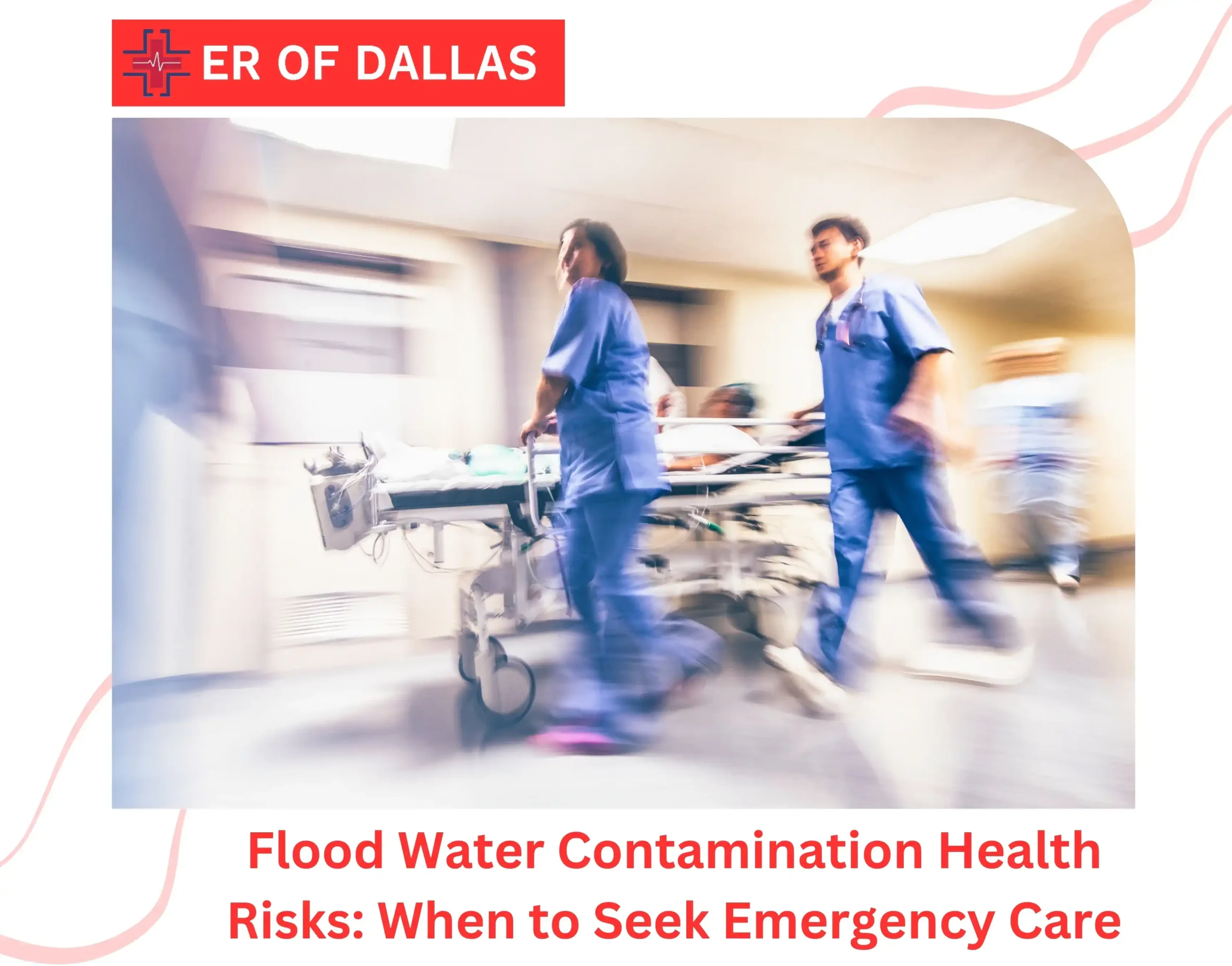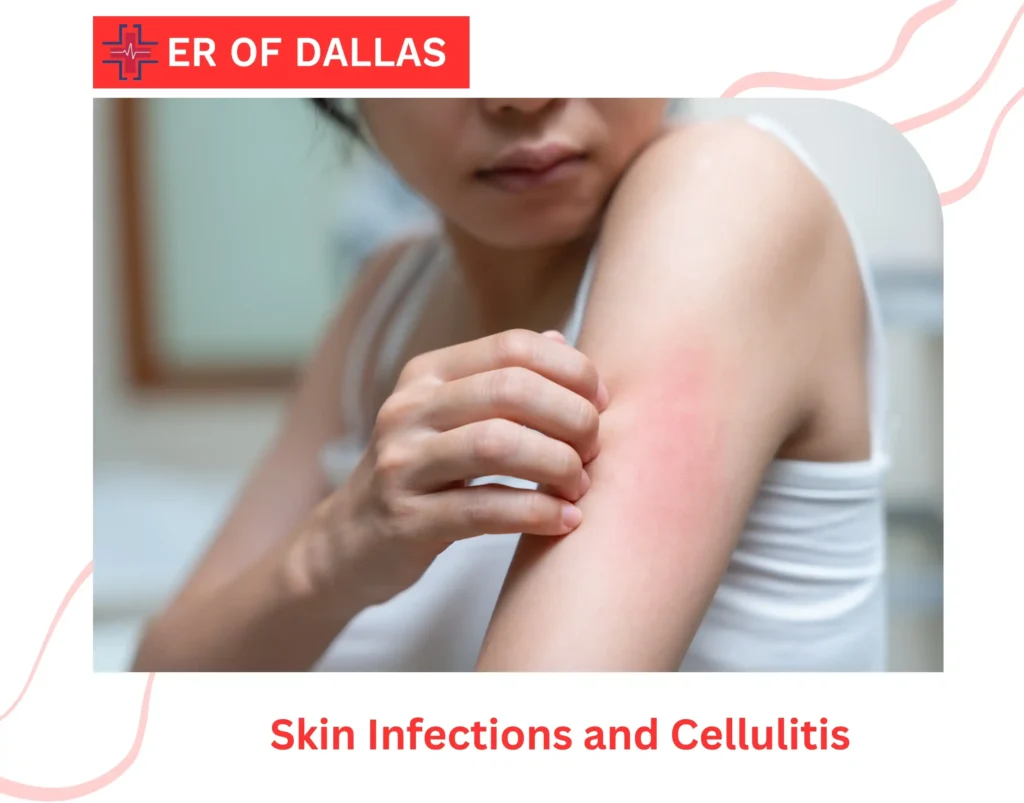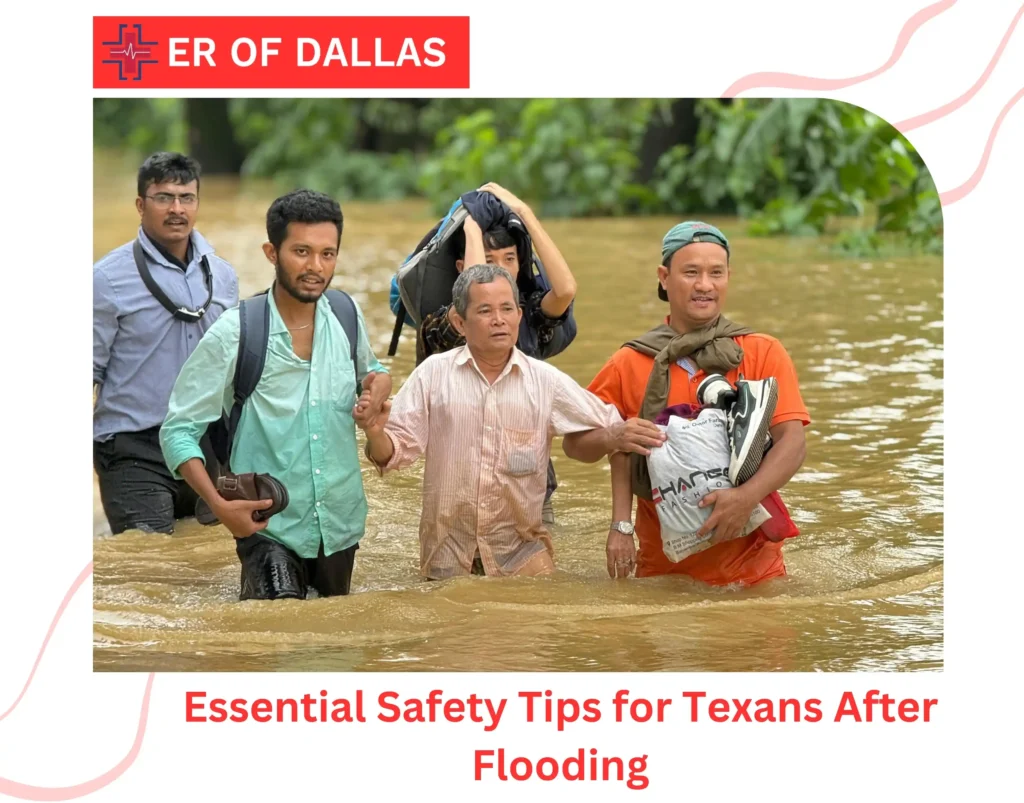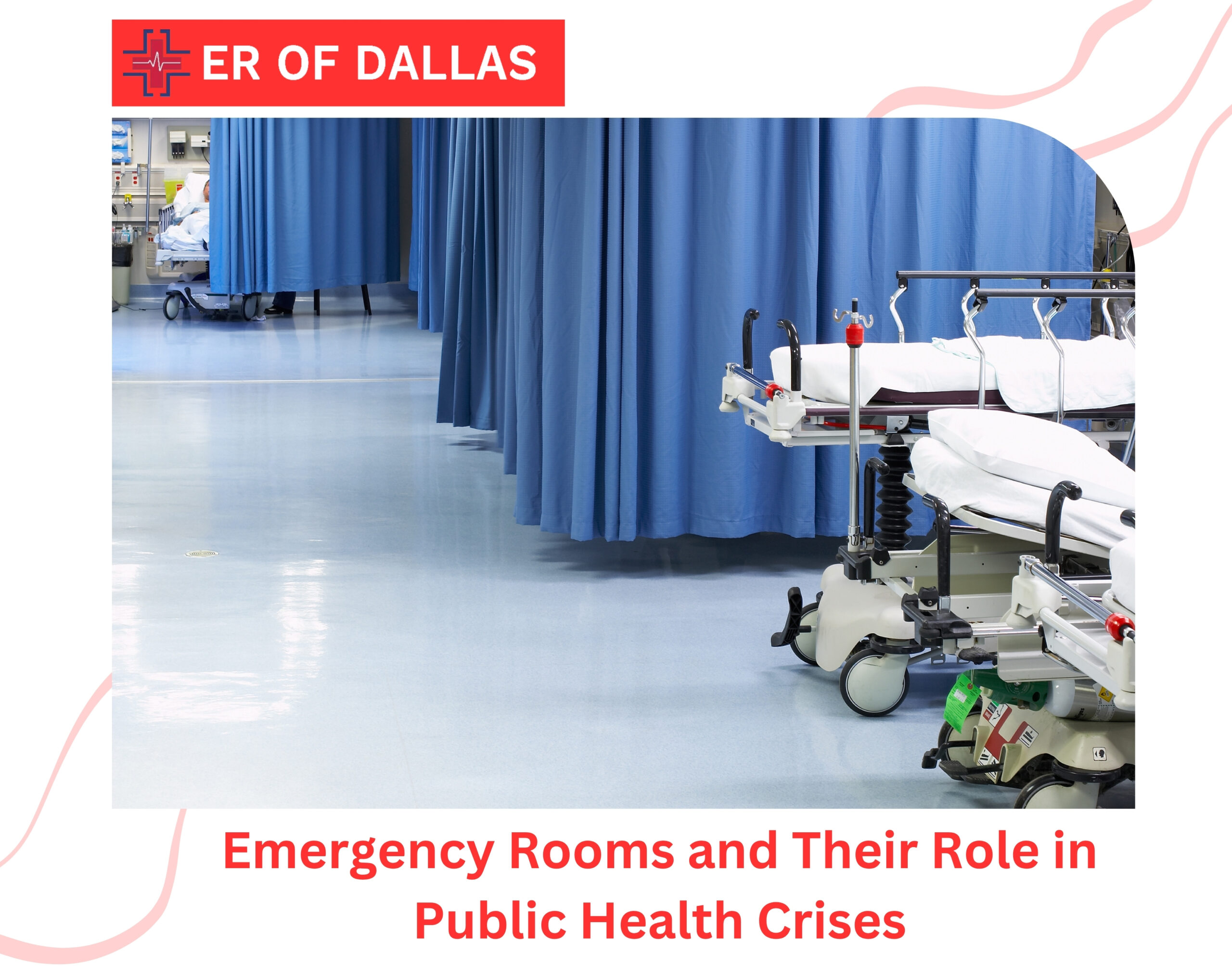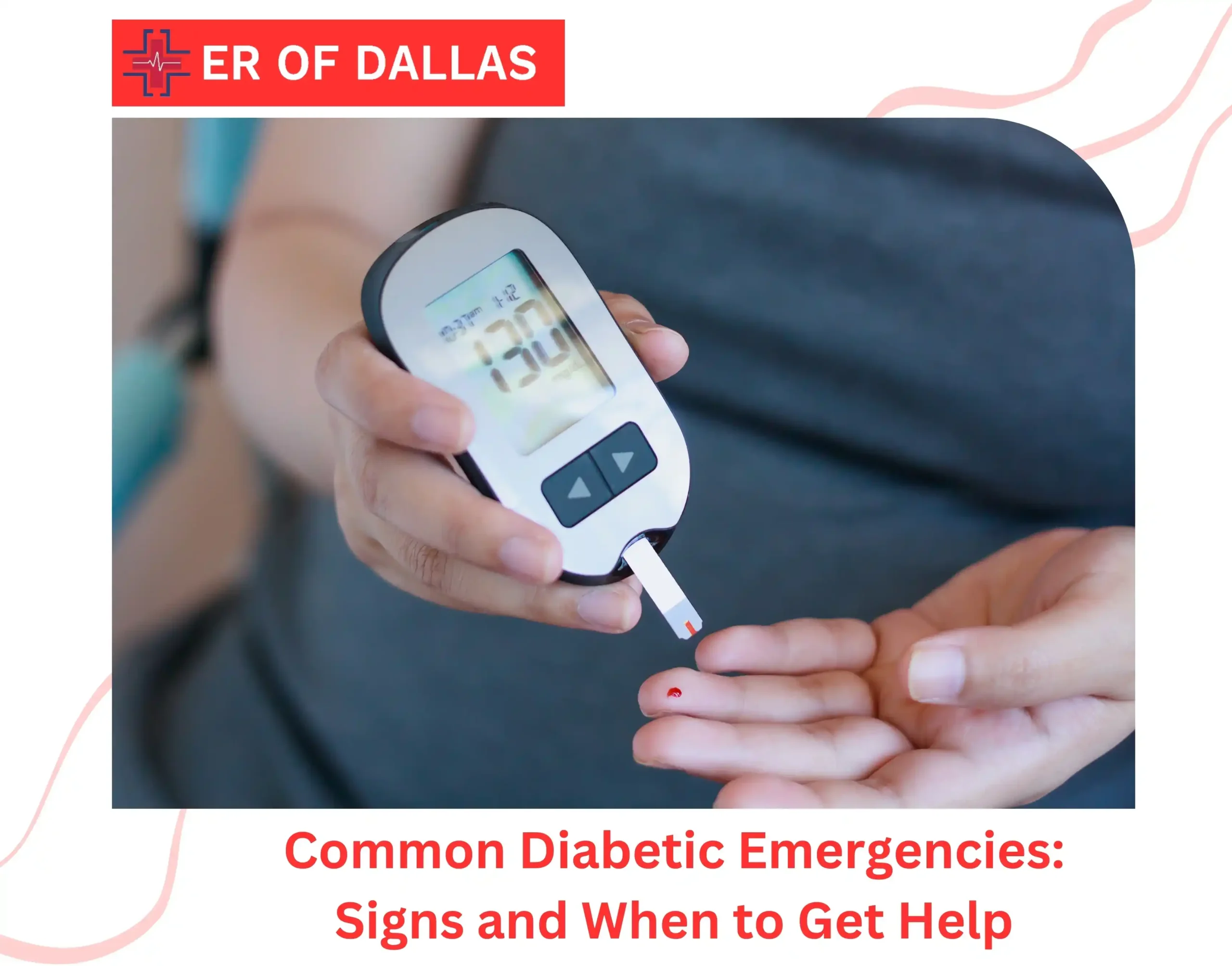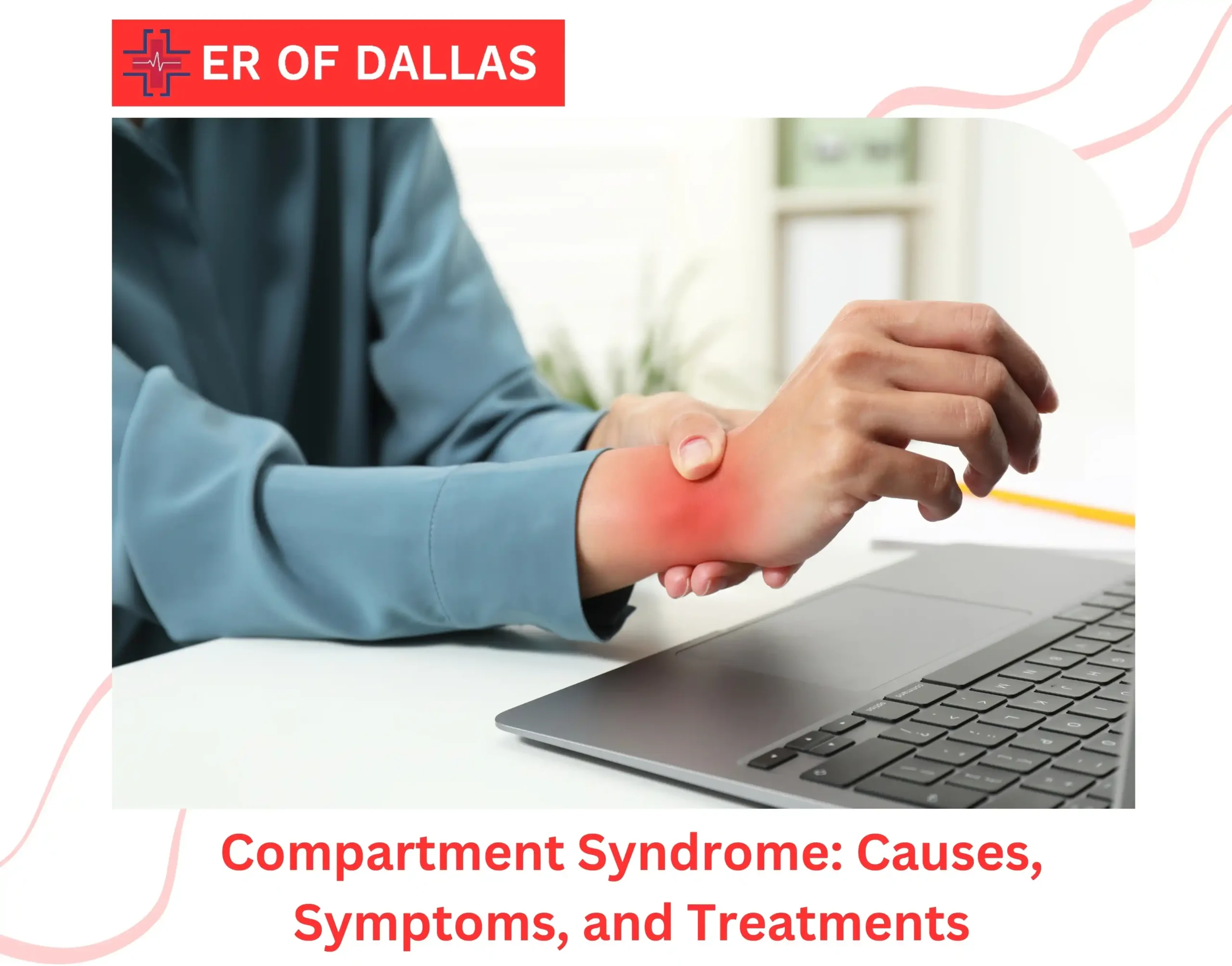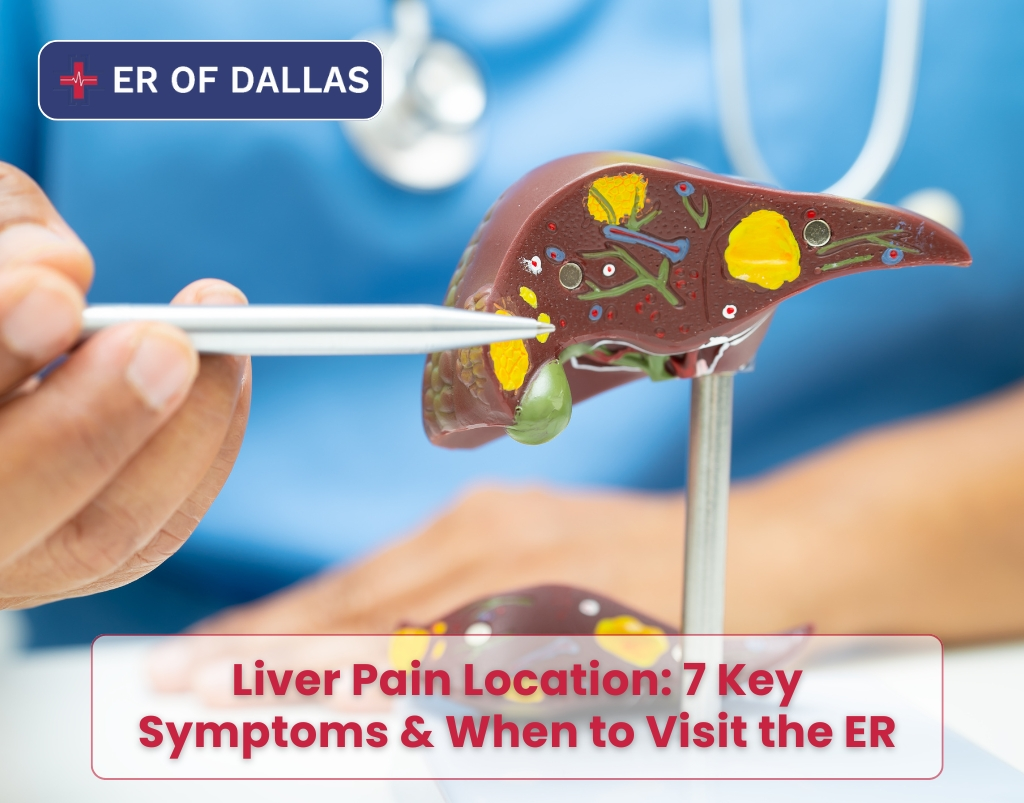Floodwater isn’t just rainwater. It carries a dangerous mix of sewage, pesticides, chemicals, debris, and infectious microbes that create serious health risks. Even brief exposure to flood water contamination can cause infections, illnesses, and long-term complications.
Symptoms can appear within hours or develop over days after exposure. Many people underestimate these risks when floodwaters recede and they return to affected areas. Knowing what to watch for and when to seek emergency care could protect your health or save a life during flood recovery.
Let’s understand the health risks caused by flood water contamination that you should be aware of, especially in the aftermath of severe flooding.
1. Skin Infections and Cellulitis
Wounds and scratches exposed to contaminated floodwater can become breeding grounds for bacteria like Staphylococcus and Streptococcus. These organisms thrive in flood conditions and can rapidly penetrate broken skin. This leads to cellulitis, a fast-spreading skin infection that needs prompt treatment.
Warning Signs:
- Redness, swelling, or warmth around a wound
- Pus or drainage
- Fever, chills, or body aches
When to Seek Emergency Care:
- Rapidly spreading skin redness
- Increasing pain or swelling
- Signs of systemic infection (fever, fatigue)
2. Gastrointestinal Illnesses
Swallowing floodwater, even accidentally, can cause serious digestive system infections due to organisms like E. coli, Norovirus, and Salmonella. Floodwater concentrates these pathogens from sewage overflow and agricultural runoff. These bacteria and viruses attack the digestive tract, causing rapid onset of severe symptoms that can lead to dangerous dehydration.
Warning Signs:
- Diarrhea or vomiting
- Abdominal cramps
- High fever
When to Seek Emergency Care:
- Dehydration symptoms: dry mouth, no urination, dizziness
- Bloody diarrhea or black stools
- Fever above 102°F or extreme fatigue
3. Respiratory Problems from Mold
After a flood, moisture lingers and mold thrives, especially in warm Texas climates. Inhaling mold spores can cause or worsen respiratory issues, particularly for those with asthma, COPD, or allergies.
Mold growth accelerates in flood-damaged buildings where humidity remains high. These spores trigger inflammatory responses in the airways, leading to serious breathing complications.
Warning Signs:
- Persistent coughing or sneezing
- Wheezing or shortness of breath
- Chest tightness or throat irritation
When to Seek Emergency Care:
- Difficulty breathing or chest pain
- Coughing up blood or thick mucus
- Signs of a severe asthma attack
4. Leptospirosis
This bacterial infection spreads through floodwaters tainted with animal urine, particularly from rodents. It enters through cuts, the mouth, or eyes. Leptospirosis bacteria survive in floodwater for weeks and can penetrate even minor skin breaks. Without treatment, this infection can cause liver and kidney failure, making early recognition critical for recovery.
Warning Signs of Leptospirosis:
- High fever and severe chills
- Intense muscle aches, especially in calves
- Jaundice (yellow skin and eyes)
When to Seek Emergency Care:
- Signs of liver or kidney trouble
- Severe fatigue with dark urine
- Persistent fever above 102°F
5. Chemical Exposure
Floodwaters in residential, industrial, or agricultural areas often carry harmful chemicals like pesticides, gasoline, or solvents. Contact or inhalation can lead to poisoning or burns.
Flooding washes these toxins from storage areas, creating dangerous chemical mixtures. These substances can cause immediate tissue damage and systemic poisoning that requires urgent medical intervention.
Warning Signs of Chemical Exposure:
- Burning sensation in eyes, throat, or skin
- Dizziness or headaches
- Nausea accompanied by confusion
When to Seek Emergency Care:
- Respiratory distress or chest pain
- Seizures or confusion
- Chemical burns or prolonged chemical exposure
6. Tetanus
Tetanus bacteria, found in soil and contaminated water, can enter through wounds or punctures. Even if you’ve been vaccinated, booster shots may be needed after certain injuries.
Floodwater carries concentrated tetanus spores that thrive in oxygen-poor environments. This bacteria produces toxins that attack the nervous system, causing potentially fatal muscle paralysis without immediate treatment.
Warning Signs of Tetanus:
- Jaw stiffness or lockjaw symptoms
- Muscle spasms or painful cramps
- Difficulty swallowing or breathing
When to Seek Emergency Care:
- Deep wounds from contaminated objects
- Unclear tetanus vaccination status
- Early signs of muscle stiffness
Essential Safety Tips for Texans After Flooding
Prevention remains the best defense against flood water contamination. Following these safety measures can significantly reduce your risk of exposure and protect your family from serious health complications.
Immediate Safety Measures:
- Avoid contact with floodwater whenever possible
- Wear protective gear: boots, gloves, and long sleeves
- Clean and disinfect wounds immediately
- Keep children and pets away from contaminated areas
Home Safety and Cleanup:
- Discard any food or water that contacted floodwater
- Document contamination damage before cleanup (for insurance)
- Use EPA-approved disinfectants on all surfaces
- Check for mold and air out spaces as soon as it’s safe
- Dispose of porous items (carpets, mattresses) that absorbed floodwater
Medical Preparedness:
- Stay current on vaccinations, especially tetanus
- Keep a first aid kit accessible during cleanup
- Know the location of your nearest emergency room
- Have emergency contact numbers readily available
These precautions become even more critical during cleanup and recovery phases when exposure risks remain high.
Protecting Your Health During Flood Recovery
Flood water contamination poses serious but often overlooked public health hazards. With Texas experiencing more intense flash flooding, it’s vital to be aware of the risks.
If you or a loved one has been exposed to floodwaters and begins experiencing unusual symptoms, seek emergency medical attention immediately. Early intervention can mean the difference between minor treatment and serious complications requiring hospitalization.
FAQs on Flood Water Contamination
1. Is floodwater always contaminated?
Yes, floodwater is generally considered contaminated. It carries sewage, chemicals, debris, and disease-causing microorganisms. Even if it looks clean, it’s unsafe to touch or ingest.
2. What should I do if I accidentally drank floodwater?
If you’ve ingested floodwater, monitor for symptoms like stomach pain, vomiting, diarrhea, or fever. Seek medical care immediately, especially if symptoms worsen or you have a weakened immune system.
3. How soon do symptoms appear after floodwater exposure?
Symptoms can appear within hours or days, depending on the type of infection or exposure. Gastrointestinal symptoms often appear within 24 to 48 hours, while mold related issues or leptospirosis may take longer.
4. Should I get a tetanus shot after flood exposure?
Yes, especially if you have cuts or wounds and haven’t had a tetanus booster in the past 5–10 years. Ask your healthcare provider for guidance after any injury involving floodwater.
5. How can I safely clean my home after a flood?
Wear protective clothing including gloves, boots, and masks. Disinfect all surfaces with bleach or EPA approved cleaners. Discard porous or heavily soaked items and ensure proper ventilation to reduce mold growth. If unsure, consider hiring a professional remediation team.
6. Who is most at risk from floodwater contamination?
Children, older adults, people with chronic illnesses, and individuals with open wounds or compromised immune systems are most vulnerable to serious complications from contaminated water.
7. Can pets get sick from floodwater exposure?
Yes. Pets are also at risk for infections like leptospirosis and skin problems. Keep them away from floodwater and consult a veterinarian if they show signs of illness.

